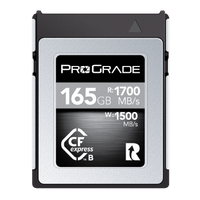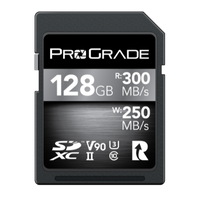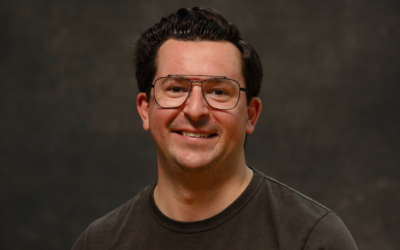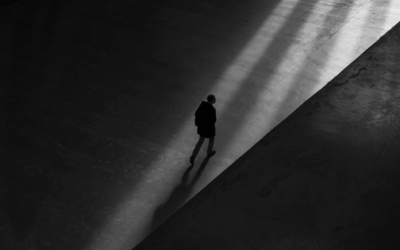How does one become an accomplished cinematographer? Joe Provezano, a master of his craft, shares his journey in this exclusive interview. Starting from his early days working with film to his favorite gear and the importance of memory cards, Joe offers his insights and experience to aspiring cinematographers. His passion for filmmaking and his unwavering dedication to excellence shine through in every word. Get ready to be inspired as Joe takes us on a deep dive into his artistry and shares valuable advice for those looking to make their mark in the industry. With Joe’s guidance, the possibilities are endless.

Joe, thank you for taking the time to chat with us today. Let’s start by telling us a little bit about yourself and your journey into the world of cinematography.
For twenty-five years, my life’s been dedicated to the industry — always in the camera department. My journey began in a rental house where I learned every inch of camera equipment as well as all aspects of the business. After mastering these skills out on location through commercials, music videos, short films, and beyond – it was time to take things up a notch and start working full-time with feature film projects, commercials, and television series.
Throughout your career, you’ve worked on some incredible feature films. What would you say you’re known for, after being in the business for so long?
I think the thing I’m most known for is my technical savvy — being able to understand how all the different pieces work together and how every little thing affects everything else. Whether it comes to the way you build a camera, the way you use lenses, blocking a scene, or even the lighting. Just the way that all the parts fit together and how they affect each other even on a technical scale.
I love popping into a rental house before coming back out again armed with an arsenal full of gear that fits just right for projects that need an extra funky tilt or tweak. It’s this kind of expertise that makes me passionate about what I do — helping others make their visions come alive on screen.

Can you share some of the biggest challenges you’ve faced, and how you overcame them?
A lot of being a really good cinematographer is understanding how all the different pieces work and keeping a certain objectivity or perspective on things, always expecting the unexpected in a way, but also knowing how all the pieces work. And that’s what makes it really challenging.
Back in the film days, the biggest problem was the actual film itself. The cameras were so simple back then. You didn’t have all these wires all over the place powering different things. You had just a camera and a main power source. You had the film, and the film was very delicate. It was very precious to a certain point. You could get away with a little bit of exposure here and there. There was always a little bit of play in the stop, but you didn’t know what you were going to get until you got a call from the lab the next day to let you know that everything looked okay. It was a bit of a mystery. There were so many things that could go wrong — you didn’t know if the placement of the mirror, the shutter, or the spinning shutter in the camera was perfectly aligned with the film plane.
So, you’d break down the set and send the actors back home, all across the world, and then the next day you get a call from the lab that everything was out of focus and there was no way of knowing. You had to trust that the lab was going to do what you asked them to do as far as the exposure of the chemical exposure process, and other times there’d be a scratch on the film. And I was lucky — I didn’t have too many problems over the years. I mean, we shot hundreds of projects on film and didn’t have many problems. You had to trust a light meter. You had to know what you were doing. You really had to know what you were doing.

What sort of challenges do you face since switching to digital?
In the digital world, we often encounter similar issues, such as incorrectly set file formats on cameras. For example, one out of four cameras may be mistakenly set to a different format, like not using RAW format or having a different base ISO. This can cause headaches and may even render the footage unusable.
File corruption is another concern, which is why we prioritize using reliable media. In our industry, there’s a lot at stake. Not only are there financial costs involved, like setting up a stage, renting equipment, hiring a crew, and providing meals, but there’s also the invaluable creative input of the artists and actors. It’s difficult to put a price on that, and even more challenging to recreate that same artistic expression if a reshoot is necessary.
Let’s talk a bit more about memory cards. They play a crucial role in your work. Do you have a preference in brand and type of card?
I can’t stress how important it is to make sure that your media is 100%. We go through a very thorough process of testing media. We weed out the bad apples when it comes to brands that make the cards that go in the cameras. We test all of it. We test that it records in different parameters, in different situations, and downloads properly. Just like back in the film days, you had to trust that you were using a name-brand film. You weren’t going to use some off brand. You were going to shoot, and you knew what lab you were going to, and you weren’t going to go to someone who could do it for cheap. It’s the same way with digital media now.
If you show up on a job and you saved a couple of hundred dollars by buying some cheaper brand memory cards, as opposed to buying the best, maybe no one knows you saved yourself a couple of bucks. The problem is that if something goes wrong, if there’s corruption, if there’s any kind of a problem whatsoever, it’s because you bought the cheap memory card.
On the other hand, if you buy the best there is — the best model, the best speed, the best everything and something goes wrong, you’re pretty much blameless because, hey, I had the best.
I find that in my experience over the past few years working with ProGrade Digital, they make what I consider to be the best, most reliable memory cards. I’ve never heard one single complaint about ProGrade. I have a lot of friends who are DIT’s — a lot of friends who do this kind of production on a very, very large scale. We’re shooting major 100-million-dollar movies these days and we’re all shooting on ProGrade cards. There’s a reason for that. Because it’s reliable. It’s the best. If something does go wrong one day, which it hasn’t, you have ProGrade. This is the best. There’s nothing better out there that you can buy. You bought the best.
But if you go buy some other brand and show up on set with that inferior brand, that isn’t as well made, that isn’t as rigorously tested, and something goes wrong, everyone’s going to point the finger at you, and your only defense is, “hey, I saved a couple of bucks.” That’s the only defense you’re going to have in that situation. So it pays to stick with ProGrade.

Let’s talk a bit more about gear. You shoot with the Canon R3. Can you tell us why you chose it?
I was looking for a new camera, something that was good for both stills and video. It’s very important to me. I shoot half and half. I wanted a camera that could shoot stills really well and not kind of an afterthought in a video camera that you can still shoot a still. I wanted something with great autofocus, really good stabilization, a nice continuous shooting speed, with all the right bells and whistles for shooting some really good stills. Plus it had to be lightweight, compact, and mobile with good battery power and high resolution.
The other thing I needed was also a good video camera. I rarely use this as an A camera on a job, but maybe as a C camera or for certain applications like shooting timelapse sequences for car mounts. Nothing out there was quite fitting the bill until the R3 came out and I started looking through it and reading some preliminary reviews. Then, it was apparent to me right away that this is the camera. It has everything I need.
The biggest selling factor for me on the Canon R3 was the fact that it shoots 6K video, it doesn’t overheat and takes unbelievable still photos.
For aspiring filmmakers who look up to you, what advice would you give them as they embark on their journey?
If I could give any advice to upcoming filmmakers out there, it’s to do your research, buy the best, and don’t buy junk. It’s frustrating not to have the right tools. It’s frustrating to try to use equipment that could be better, whether it’s a tripod head that is too small for the weight limits of the camera that you’ve got or it’s the cheap batteries that die. Because having things fail on you is frustrating. It makes you look bad.
When you’re out there in front of new potential, you might be doing a little tiny job, but you want to look like you’re an absolute pro. You want to show up with the best gear that money can buy. Take a loan, borrow money, and do whatever you need to get the best. You don’t have to buy all the bells and whistles out there, but what you show up on set with tells everybody who you are and where your priorities are.
Typically, when I’m buying equipment, it’s because that equipment will make me money very in a direct one-to-one relationship. I’m going to make money renting this gear, and I’m going to pay this gear back in hopefully a very short amount of time. So therefore, it’s a no-brainer to spend more money and get the best because you know you’ll be making that back. But I also buy a lot of equipment that will just make my life easier. Or maybe it’s into some kind of an exploratory new thing that I’m interested in. I want to go and check this out. I want to try something I’ve never done before. Maybe I’ll head that way. Perhaps it’ll help me later in my career. Maybe it’ll advance my career. I always want the best. I want the best because it’s going to be reliable, and it’s going to make me look good when I pull it out of my bag.
And I know that that sounds superficial, but it’s really not. I don’t want to spend a ton of money on super-expensive gear that I’m not going to make money off of. So I pick and choose what I’m going to buy. But whatever I buy, it will be the best because I know it will work well. It’s not going to let me down. It’s not going to fail. If you spend three days prepping a project and it fails because the gear is not up to spec, you’ve just wasted three days.

For anyone looking for inspiration or guidance, Joe Provezano is certainly one to watch. His illustrious career has enabled him to hone his skills and build a strong reputation in the field of cinematography. His work ethic and creative drive are a testament to his abilities as an artist, and he serves as an example for those aspiring to follow in his footsteps. We’re grateful to have had the opportunity to learn from Joe today, and it’s quite clear that, after 25 years, he’s only just getting started! We can’t wait to see what else he has in store.




